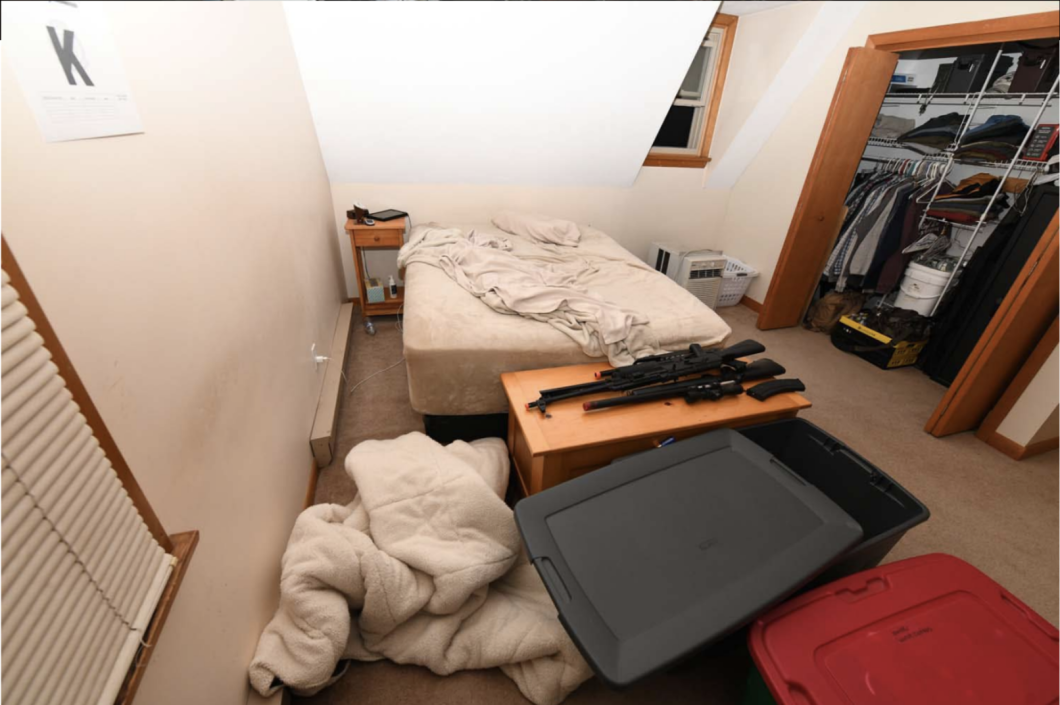
Newly revealed details regarding the life of Massachusetts Air National Guardsman Jack Teixeira, who has been accused of leaking hundreds of classified military documents, have raised questions with the Pentagon over his top-secret security clearance.
At first, Department of Defense officials faced questions about why a 21-year-old would have access to such documents. Secretary of Defense Lloyd Austin dismissed them by saying most of the military is young.
AIR FORCE SUSPENDS TWO LEADERS OF ALLEGED PENTAGON LEAKER’S UNIT
But the details of Teixeira’s high school suspension, which later prompted local law enforcement to reject his applications for a weapons license, will put additional scrutiny on the department’s procedures and policies regarding classified intelligence.
Teixeira was suspended in high school for comments a classmate overheard him make “about weapons, including Molotov cocktails, guns at the school, and racial threats,” according to a pretrial motion filed by prosecutors Wednesday. He said those remarks were a reference to a video game in a pretrial interview.
The same year he was suspended, 2018, local police denied his application for a firearms identification card (FID) due to the comments. He applied again in 2019 and for a third time in 2020, citing his job with the military “as a reason he could be trusted to possess a firearm,” the motion said.
Neither the comments that got him suspended nor being denied an FID stopped the military from giving him a “top secret” and “sensitive compartmented information,” or TS/SCI, security clearance in 2021. He was required to fill out an extensive questionnaire known as Electronic Questionnaires for Investigations Processing (E-QIP) and was vetted by the Defense Counterintelligence and Security Agency, which conducts the investigations and adjudication process for security clearances for the Defense Department, before he received his clearance.
Pentagon spokesman Brig. Gen. Patrick Ryder has declined to answer questions about Teixeira, citing both the criminal investigation into Teixeira’s activities and the reviews being conducted by the department and the Air Force, though he did provide insight into the clearance process on Thursday.
“The bottom line is, through this process, an adjudicator follows a very prescribed process that examines a sufficient period in a person’s life to make an affirmative determination that that person is eligible first for a security clearance,” Ryder said. “And then eligibility for access to classified information is predicated upon the individual meeting personnel security guidelines, to include a number of variables that we look at in terms of, for example, the nature and extent and the seriousness of the conduct; the circumstances surrounding the conduct, to include knowledgeable participation; the frequency and recency of the conduct; the individual’s age and maturity at the time of the conduct; the voluntariness of participation; the presence or absence of rehabilitation or other pertinent behavioral changes; the motivation for the conduct; the potential for pressure, coercion, exploitation, or duress; and then the likelihood of continuation of recurrence.”
Ryder said people in Teixeira’s position, a cyber transport systems journeyman working in an intelligence wing, would “by default” include the handling of “a lot TS/SCI type of information, so that in and of itself, is not unusual.”
The department is reviewing its procedures related to classified information and security clearances, including the process of how it vets individuals and who gets access to what classified documents.
Teixeira’s behavior and comments over the last six months also raise concerns about why he still had the clearance and access to weapons.

The government included in its filing social media posts purportedly from Teixeira from November 2022, saying that he would “kill a [expletive] ton of people” and that it would be “culling the weak-minded.” He reportedly said in February of this year that he was tempted to make a minivan into an “assassination van.” In March of this year, prosecutors said, he described sports utility vehicles as “mobile gun trucks” and “[o]ff-road and good assassination vehicles.”
At the time of his arrest, Teixeira allegedly had multiple weapons in his room, including handguns, bolt-action rifles, shotguns, an AK-style high-capacity weapon, and a gas mask. FBI agents involved in the arrest said they also found ammunition and tactical pouches on his dresser and what they believed to be a silencer. A military-style helmet with a mounting bracket, presumably for a small camera, was also recovered, while a GoPro was found in a Dumpster. Investigators said they found a tablet, a laptop computer, and an Xbox gaming console, all of which had been smashed.

Defense officials are also facing questions over how long Teixeira had allegedly been leaking documents and why it took months for the department to discover the leak.
Prosecutors have said he first began leaking paragraphs of text copied from classified documents in a Discord channel composed of a couple of dozen young men with similar interests back in December. About a month later, Teixeira started printing the documents out, taking them home, photographing them, and then posting them, according to his arrest affidavit.
The breach was only discovered when at least one member of the group began sharing the leaked information on other social media platforms, which is where it was disseminated far and wide.
Wednesday’s motion from prosecutors also included messages that Teixeira allegedly sent to others included in the group about the leaked documents.
User: ?
TEIXEIRA: everything that [I’]ve been telling [you] guys up to this point has been [laugh out loud]
TEIXEIRA: this isn[‘]t different
User: Well
User: You [really] trust everyone here then
TEIXEIRA: [I] have plausible deniability and non of them know anything incriminating about me
TEIXEIRA: no one has a point of contact to my work
TEIXEIRA: no one knows where [I] work
TEIXEIRA: and no one knows how to identify me
TEIXEIRA: [Don’t worry] [I’]ve thought of that
In early April, the airman is believed to have used his government computer to search classified intelligence reports for the word “leak,” the affidavit said, citing an unnamed government agency that can monitor certain searches conducted on its networks.
CLICK HERE FOR MORE FROM THE WASHINGTON EXAMINER
Days later, Teixeira was arrested and charged under the Espionage Act with unauthorized retention and transmission of national defense information and unauthorized removal and retention of classified documents or material. He currently faces 25 years in prison or more, depending on how prosecutors choose to charge him.
The federal magistrate judge assigned to the case, David Hennessy, heard arguments from prosecutors on Thursday about why Teixeira posed a “serious flight risk” and should remain in pretrial detention, while his defense attorneys argued he should be released, even if it means imposing restrictions, such as location monitoring and barring him from accessing the internet or contacting any witnesses in the case. Hennessy has not ruled either way.





